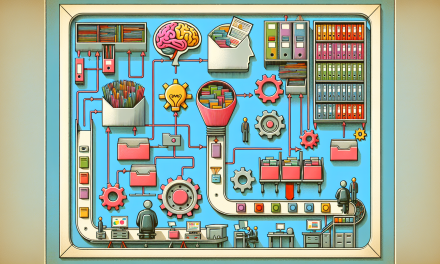Table of Contents
- Understanding HR Metrics
- Importance of Analytics in HR
- Building a Data-Driven Culture
- Key HR Metrics to Track
- Leveraging Analytics for Strategic Decision Making
- Effective Communication Skills for HR Professionals
- FAQs
- Conclusion
Understanding HR Metrics
To begin with, HR metrics serve as crucial indicators that help track the performance of various HR functions. These metrics allow organizations to assess their workforce effectively. By understanding these metrics, HR professionals can gain insights into employee performance, retention rates, workforce demographics, and many more aspects that impact organizational success.
What Are HR Metrics?
HR metrics are quantitative measurements that provide data about HR processes, enabling organizations to make informed decisions. For example, measuring the time taken to fill positions can illuminate the efficiency of recruitment practices. Therefore, every HR team should actively use these metrics.
The Evolving Role of HR Professionals
As workforce dynamics continue to evolve, the role of HR professionals has shifted from administrative functions to strategic partners. This evolution necessitates a solid grasp of HR metrics. Equipped with this knowledge, HR teams can significantly contribute to capacity planning, talent management, and labor costs.
Importance of Analytics in HR
Through analytics, HR professionals gain comprehensive insights that academic studies alone cannot provide. Moreover, virtualization of the workplace has underscored the need for data analytics. In essence, leveraging analytics transforms HR from a traditional role into a strategic function.
How Analytics Enhances Decision-Making
Additionally, analytics empowers HR professionals to make data-driven decisions regarding recruitment, training, and retention. By utilizing predictive analytics, organizations can forecast future trends, pinpoint potential turnover, and identify employee engagement levels. Consequently, this proactive approach enhances organizational effectiveness.
Encouraging a Data-Driven Mindset
Furthermore, cultivating a data-driven mindset across an organization ensures that every decision is backed by solid evidence. This cultural shift not only aligns HR objectives with organizational goals but also fosters collaboration among departments.
Building a Data-Driven Culture
To achieve a successful data-driven culture, HR must lead by example, using data to guide their strategies. Therefore, integrating analytics into everyday practices should be a priority. In doing so, HR can encourage employees at all levels to embrace data-informed decision-making.
Steps to Create a Data-Driven Culture
- Establish clear goals for data utilization.
- Equip HR teams with necessary tools and training.
- Promote the use of analytics across departments.
- Encourage open discussion about data insights.
- Celebrate data-driven decision-making success stories.
Key HR Metrics to Track
Essential Metrics for HR
Tracking the right metrics can illuminate how HR contributes to overall business performance. Let’s explore some essential metrics that every HR team should monitor.
Employee Turnover Rate
The turnover rate provides insights into retention challenges. This metric helps organizations assess if they are losing valuable talent and why. By understanding turnover trends, HR can develop better recruitment and retention strategies.
Time to Fill
Measuring the time taken to fill open positions is critical for evaluating recruitment efficiency. A lengthy time to fill may indicate issues in the hiring process, which need addressing.
Employee Engagement Scores
Engaged employees tend to be more productive and less likely to leave. Regularly assessing employee engagement through surveys allows HR to identify areas for improvement.
Customized Metrics for Your Organization
Moreover, organizations are unique, and metrics should align with specific needs. Consider customizing metrics based on organizational culture, industry dynamics, and strategic goals. This approach ensures relevancy and adds value.
Leveraging Analytics for Strategic Decision-Making
In today’s competitive landscape, analytics play an indispensable role in HR strategy. By leveraging analytics, organizations can foresee trends, manage talent, and enhance funding. Analytics offer a roadmap for optimizing workforce performance and engagement.
Using Predictive Analytics
Predictive analytics can forecast future employee behavior based on historical data. By employing these models, organizations can anticipate burnout, talent needs, and engagement levels. Implementing predictive analytics can evolve the way HR anticipates future challenges.
Continuous Improvement through Analytics
Additionally, continuous assessment and adjustment ensure that organizational practices evolve with employee needs. Utilizing analytics allows organizations to identify fruitful areas for improvement in HR processes and strategies.
Effective Communication Skills for HR Professionals
Now, let’s discuss how effective communication enhances the implementation of metrics and analytics. Clear communication ensures that data insights are understood and acted upon. Developing communication skills is vital to ensure that HR professionals convey important information successfully.
Enhancing Communication Skills
To underline, continuous improvement in communication is essential for HR professionals. Skills in presenting data findings, aligning stakeholder interests, and facilitating employee discussions foster better workplace relationships. For instance, resources such as Mastering Commanding Presence: Elevate Your Communication Skills can enhance these abilities.
Problem-Solving and Communication
Moreover, top-notch problem-solving skills go hand-in-hand with effective communication. Being capable of navigating conflicts and mediating disputes is indispensable. Programs like Mastering Workplace Mediation and Conflict Resolution Skills provide HR professionals with the tactics to resolve issues efficiently.
Interpersonal Skills for Success
Interpersonal skills are crucial for HR professionals when fostering positive relationships within the organization. Engaging with employees and understanding their needs can significantly enhance HR’s strategic role. Resources like Mastering Advanced Communication and Interpersonal Skills for Success offer more insights.
FAQs
What are HR Metrics?
HR metrics are quantitative measures used to assess various HR functions’ effectiveness. These metrics provide crucial insights relevant to employee performance, recruitment, and retention.
Why are Analytics Important in HR?
Analytics provide HR professionals with the ability to make data-driven decisions, enhance recruitment, improve retention, and ultimately contribute positively to the organization’s strategic goals.
How Can I Improve My HR Communication Skills?
Improving HR communication skills can involve seeking training and educational resources like Enhance Your Skills: Advanced Communication Problem Solving, which can develop these skills extensively.
Where Can I Learn More About HR Metrics and Analytics?
You can explore the detailed aspects of HR metrics and analytics by visiting HR Metrics & Analytics Certification: Master Data-Driven HR.
Conclusion
In conclusion, mastering HR metrics and analytics is crucial for the success of HR professionals and organizations alike. By actively engaging with these tools, HR can provide invaluable support in strategic planning and organizational development. Moreover, continuous improvement in communication skills magnifies the potential of HR analytics. As the workplace continues to evolve, embracing these practices will yield significant benefits for both employees and the organization as a whole.




